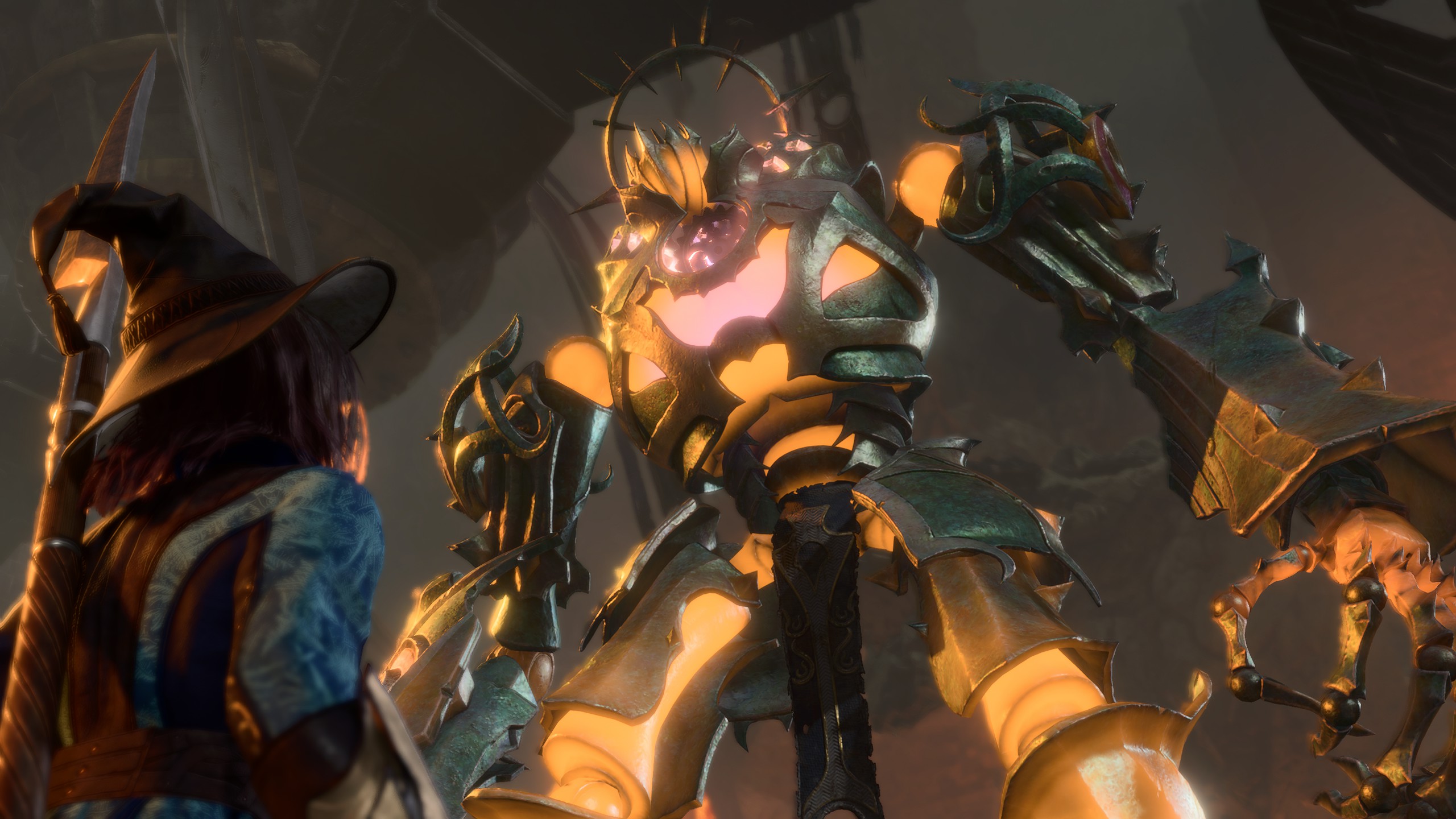Larian Studios' Swen Vincke does see potential uses for AI, but: 'We're hiring writers, not having ChatGPT write their dialogues'
Need more work done? Hire more people.

AI's been a fraught conversation in videogames. Heck, it's even reared its head in Dungeons & Dragons, the ruleset Baldur's Gate 3 was built on top of—especially after some recent comments by Hasbro's CEO about "leveraging" all of its previous works. Swen Vincke, the founder and CEO of Larian Studios is a lot more level-headed about the tech's use cases.
That's as per a recent interview with IGN at GDC this year: "My stance on AI is really straightforward: It is a tool that we use to help us do things faster. We have so much work that we're happy to take assistance from anything," however, he adds: "I don't think it'll ever replace the creative side of things and I can put money where my mouth is."
Vincke believes, generally, that AI can be harnessed—just not in the way that certain companies like Ubisoft have been doing it, with unappealing "Neo NPCs" that seem like they're just there to put narrative designers and writers out of a job, at least, if you believe the hype of tech speculation fantasy land.
In general, it feels like some high-level money people are very excited about the prospect of needing less artists, writers, and creatives. Why pay someone to 'make content' when you can buy an algorithm and 'generate infinite content'. I'm putting those in air quotes because game writers don't make content, they write scripts, and there's an appreciable difference. Between 'content' and a story to be enjoyed.
Besides, as I brought up recently, this algorithm-chasing idea of a game you can play forever seems misguided. People generally connect with stuff that's made by people, not by a grand imitation filter, and Vincke seems to agree:
"For instance, concept art is a thing that's heavily under fire because of things like Midjourney. So we just added 15 concept artists to our team," he adds that Larian had been experiencing a "bottleneck … we don't have the concept art coming fast enough, so the creatures aren't made fast enough. The technical animators can't rig it fast enough, so the animators can't do the monster fast enough, so they run out of work. Which is really the worst thing we want in a development environment."
Vincke, however, thinks the solution to a production bottleneck is to hire more people. Which sounds extremely simple when you say it out loud, but it also involves a lot of things that big companies, publishers, and financial groups have been allergic to—like not laying developers off after major deals fall through, or negotiating with unions. An AI can't complain, after all.
Keep up to date with the most important stories and the best deals, as picked by the PC Gamer team.
"We're hiring writers, so we're not having ChatGPT write their dialogues. However, I do want to say, I do see a usage of generative AI … I don't buy the full NPC being generated … I buy more that there's going to be something that's crafted, and then you'll have AI that plugs into it to augment it. And it should be done in such a way that it's invisible, so you don't know that it's shifting around."
That sounds to me like procedural arrangement rather than procedural generation, which sounds pretty reasonable—and something decided on by the writers and artists using the tools, rather than a mandate from on high. It's also how we've been using pre-machine learning "AI" in games before the algorithmic apocalypse anyway: think the director from Left 4 Dead, or any procedurally-generated roguelike.
Ultimately, it's a reassuring approach that gives me hope for Larian's future, while other developers fumble around with glassy-eyed NPCs in worlds a mile wide and an uncanny inch deep. It's also one I hope becomes widespread, once the AI honeymoon period passes—which might be soon, given how the tech's turning from grey goo nightmare to overused marketing term.

Harvey's history with games started when he first begged his parents for a World of Warcraft subscription aged 12, though he's since been cursed with Final Fantasy 14-brain and a huge crush on G'raha Tia. He made his start as a freelancer, writing for websites like Techradar, The Escapist, Dicebreaker, The Gamer, Into the Spine—and of course, PC Gamer. He'll sink his teeth into anything that looks interesting, though he has a soft spot for RPGs, soulslikes, roguelikes, deckbuilders, MMOs, and weird indie titles. He also plays a shelf load of TTRPGs in his offline time. Don't ask him what his favourite system is, he has too many.

